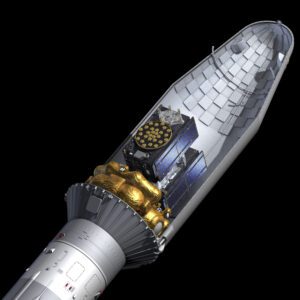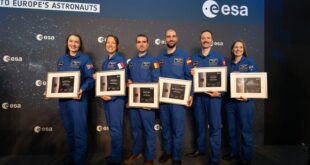
Paris, 6 December 2021. – Two more: Arianespace has successfully launched two more Galileo satellites, growing Europe’s navigation constellation to 28 satellites, the European Space Agency (ESA) said.
Soyuz launcher VS-26, operated by Arianespace and commissioned by ESA, lifted off with the pair of 715 kg satellites from French Guiana on 5 December, ESA said. The Fregat upper stage released the satellites into their target orbit close to 23,525 kilometers altitude nearly four hours after liftoff.
Galileo satellites 27-28 add to an existing 26-satellite constellation in orbit, “providing the world’s most precise satnav positioning to more than 2.3 billion users around the globe”, ESA said.
ESA is tasked with designing, developing, procuring, testing, and qualifying the Galileo system and overseeing its technical evolution. The satellites’ Launch and Early Operations Phase (LEOP) is run by the Galileo operator, SpaceOpal, from Galileo’s own control centre in Oberpfaffenhofen, Germany, for the first time, under the responsibility of the EU Agency for the Space Programme (EUSPA) which is tasked with managing the Galileo operations and service provision.
The 27th and 28th Galileo satellites are the first two out of the last batch of the constellation´s first generation. Ten more first-gen satellites built by OHB in Germany are still to be launched in the next three years. ESA is working on the ‘Galileo Second Generation’ with their first launch scheduled for 2024.





